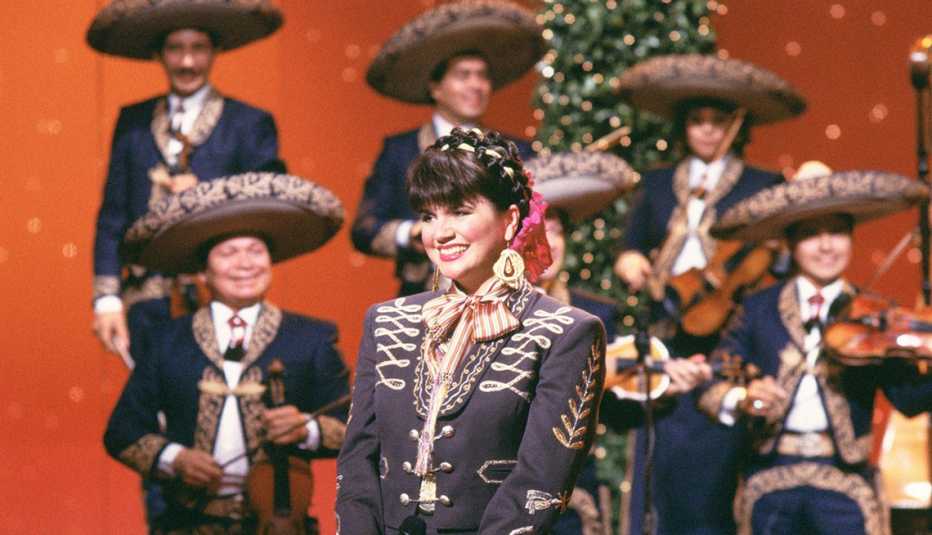AARP Hearing Center


I grew up listening to Mexican music. My family is Mexican, and I always identified as Mexican culturally, even though I have a German surname. There are a lot of Germans in northern Mexico who married Mexicans, which is the case of my grandfather. This was music that I learned from my grandfather and he learned from his father and that I learned again from my father. I remember my dad singing in Spanish and playing on the guitar, harmonizing with his brothers and my grandfather singing and playing on the solo guitar. And then on Saturday afternoons my father would play records by Los Panchos, Trío Calaveras, Trío Tariácuri, Lola Beltrán, Mariachi Vargas. I loved all these records and I wanted to sing them, but only knew part of the words. I didn’t speak very good Spanish as a child, so I thought Spanish was the language you sang in and English was the language you spoke. To me, Spanish was always a musical language.
And I had always wanted to learn these songs on a professional level and record them. I kept asking the record company, and they were like, “Oh, no, you need to record in English.” But I finally got a chance when my father called me and said that they were going to do a mariachi conference in Tucson and asked if I would like to come and see it and so I did. Mariachi Vargas was coming and so was Lola Beltrán. I was a big fan of , she was a big influence on me, and I got to sing with her. They asked if I would come back and perform the following year. I didn’t have any repertoire, so I just pulled some songs together, the ones I remembered from growing up, and sang them with Mariachi Vargas, then we just decided to make an album in Spanish.
I wound up getting booked at the same venues where I had played rock ’n’ roll. I didn’t know if anyone was going to show up. On the opening night, when I walked out onstage, the place was packed. All three generations showed up—grandmothers, mothers and fathers, and kids—and that thrilled me. They knew how to give a grito at the right moment. —As told to Isabela Raygoza
Linda Ronstadt, 73, is a Rock & Roll Hall of Fame inductee and winner of lifetime achievement awards from the Grammys and Latin Grammys. Her first album in Spanish was 1987’s Canciones de Mi Padre, which went double platinum in the U.S. Having been diagnosed with Parkinson’s disease, she has retired from singing. She is the subject of the 2019 biopic Linda Ronstadt: The Sound of My Voice.

































































More on Entertainment
The Music of My Life: Rhythm, Melody and Personal Impact
Soledad O'Brien, Gabriel Abaroa, Jr. and Gloria Molina on how music shaped themLatin Music in America: Through the Years
A timeline of the origins and styles that comprise the genre